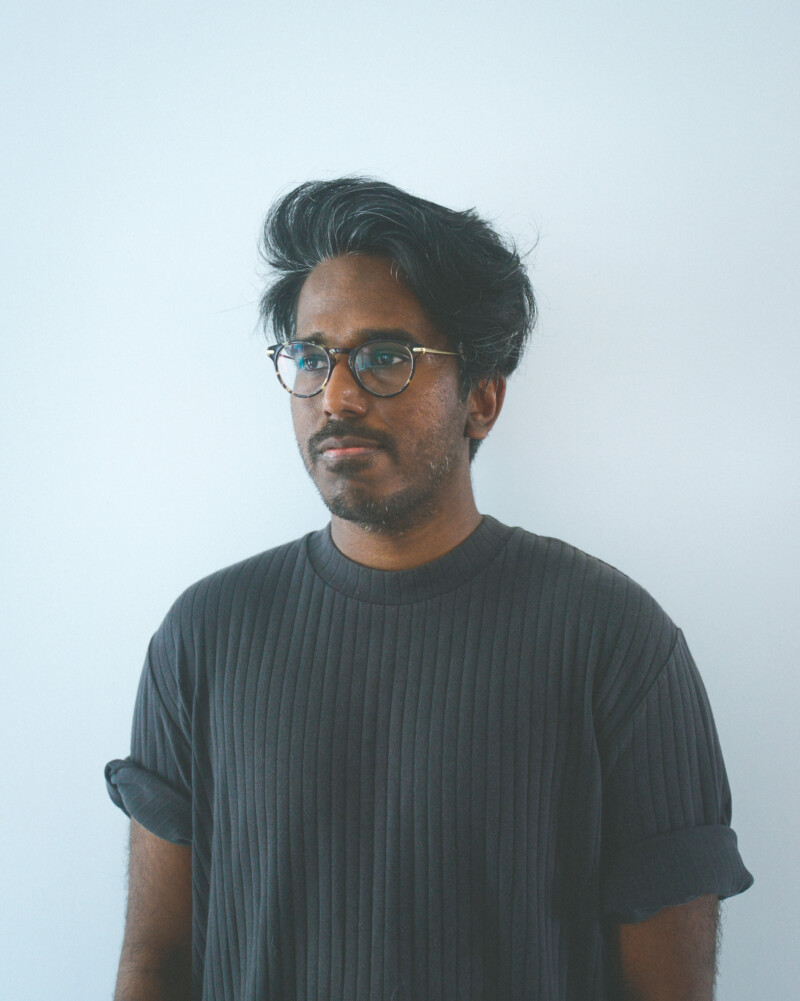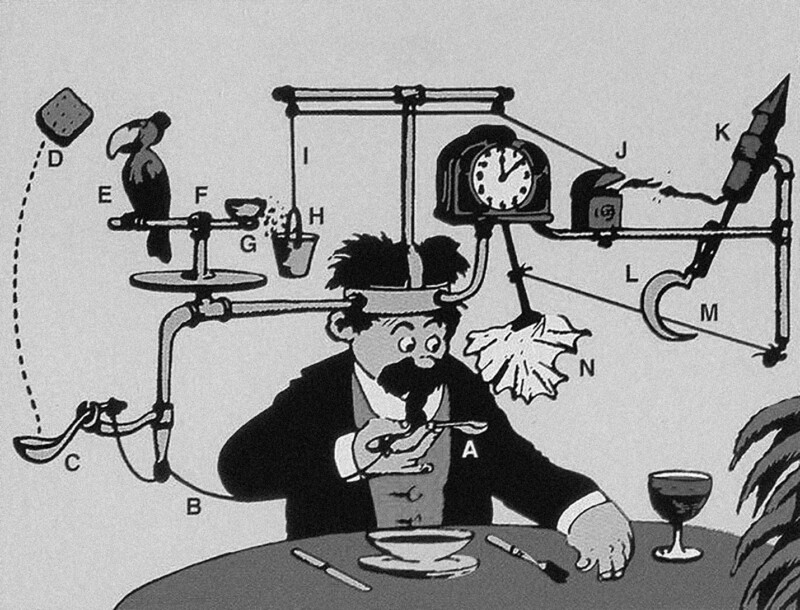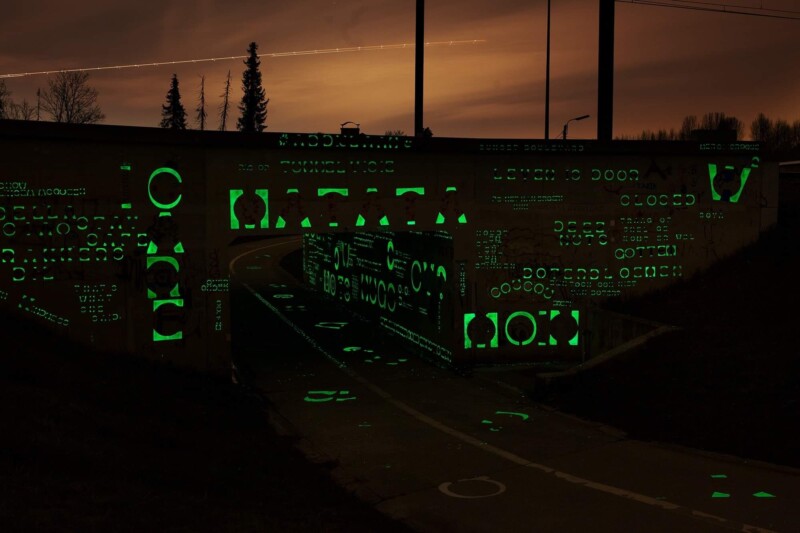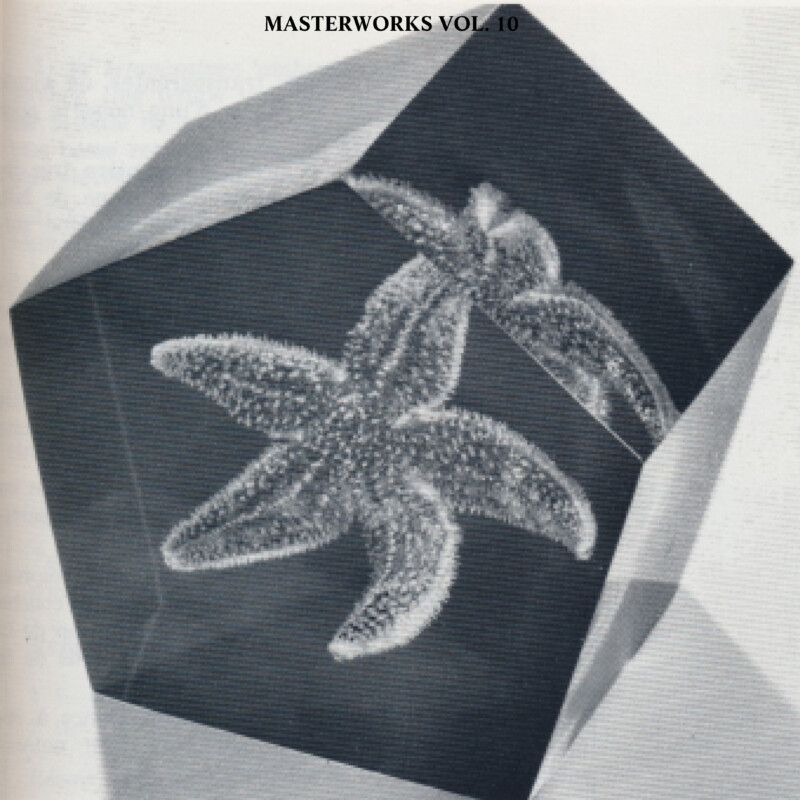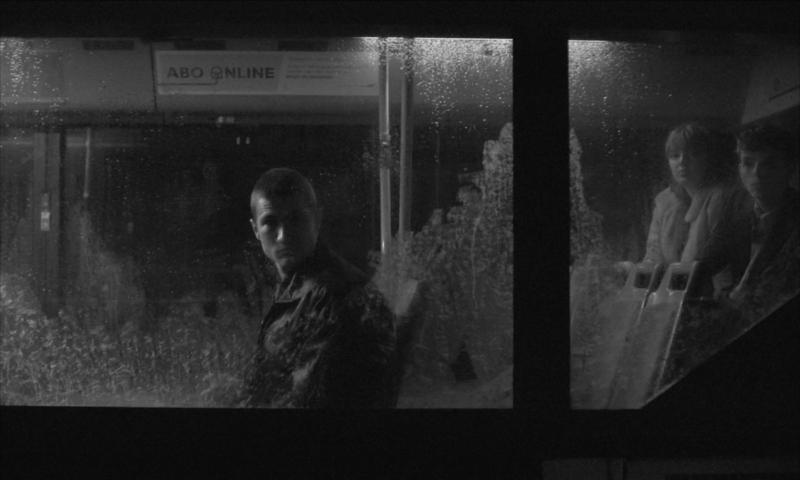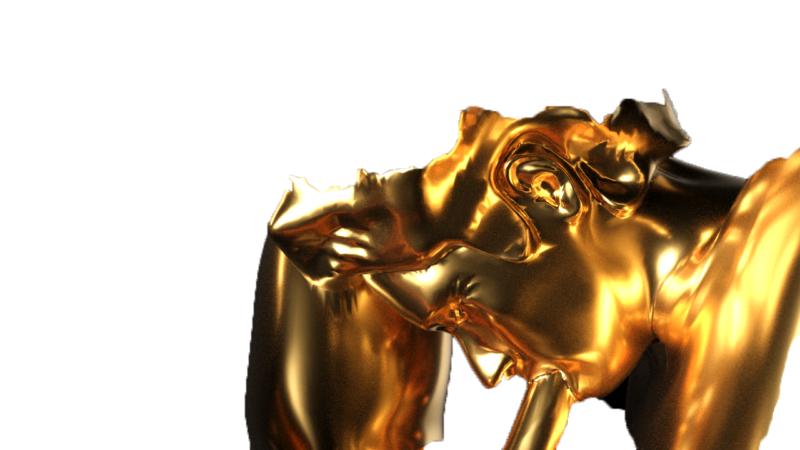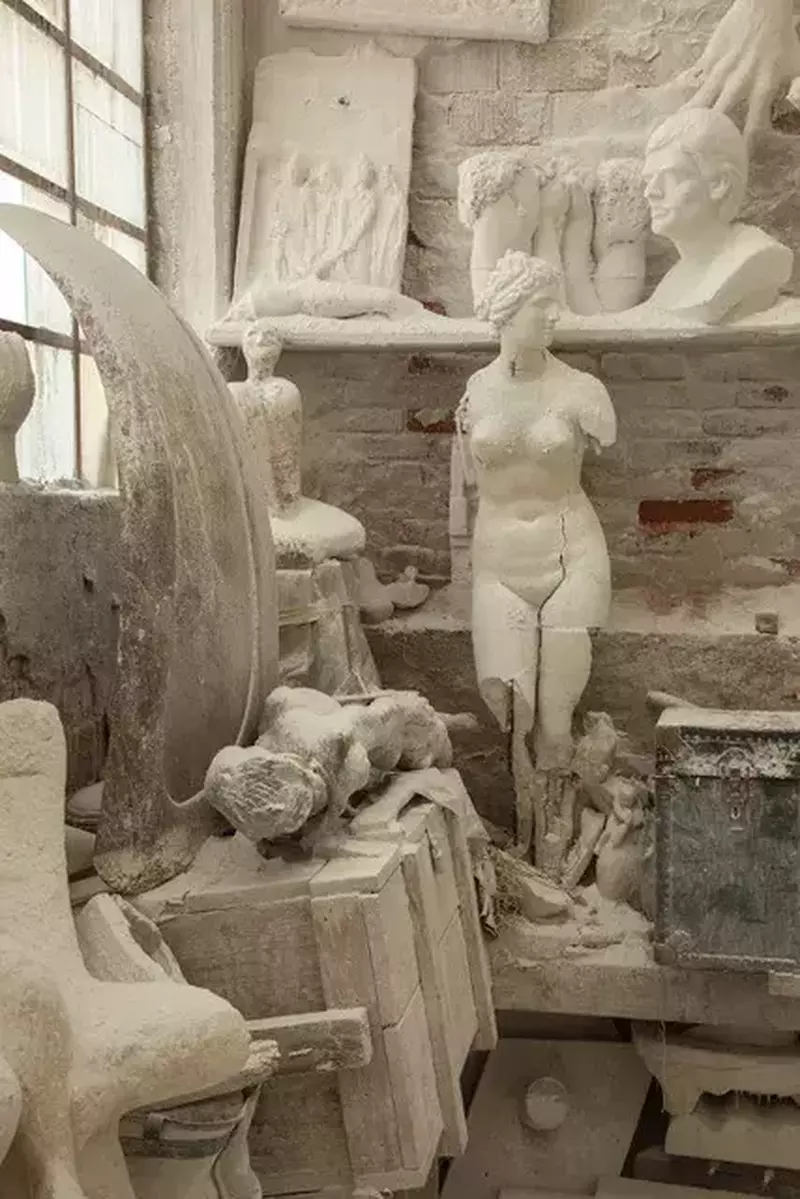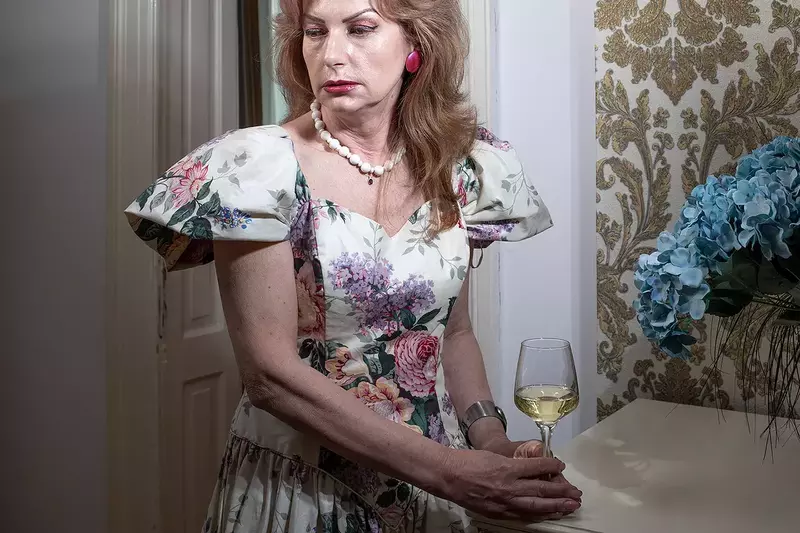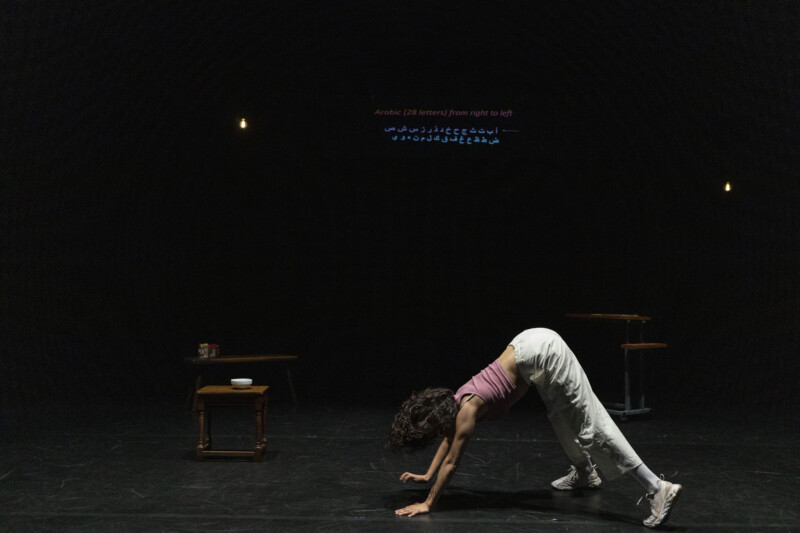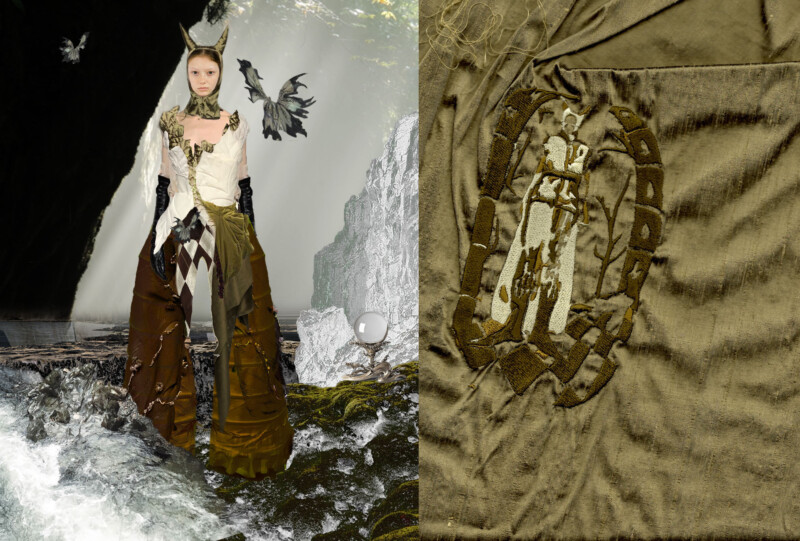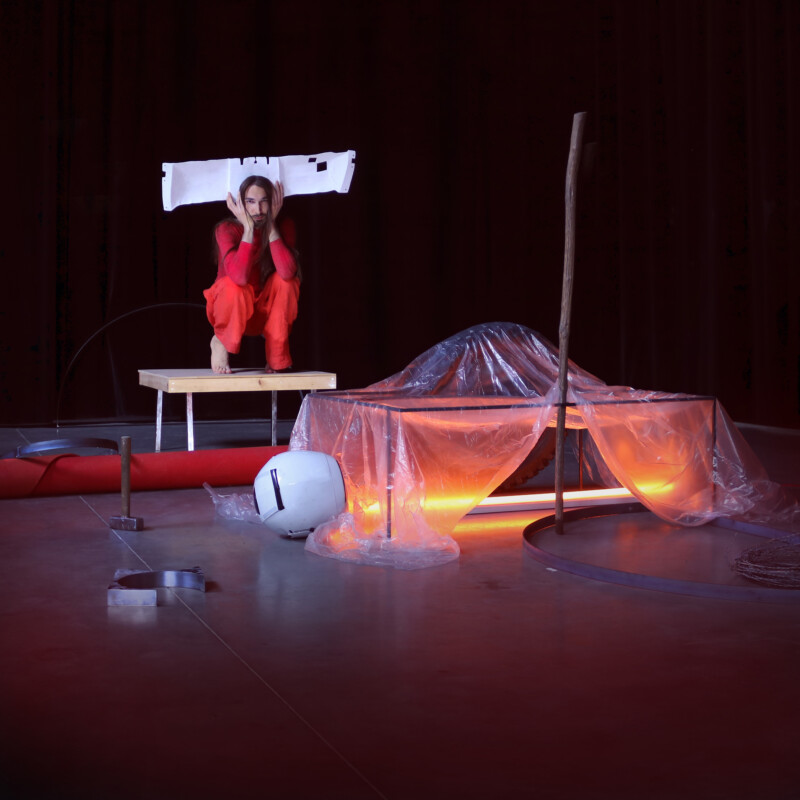Jules Mathôt
Behind the scenes of short film ‘Night by Night’
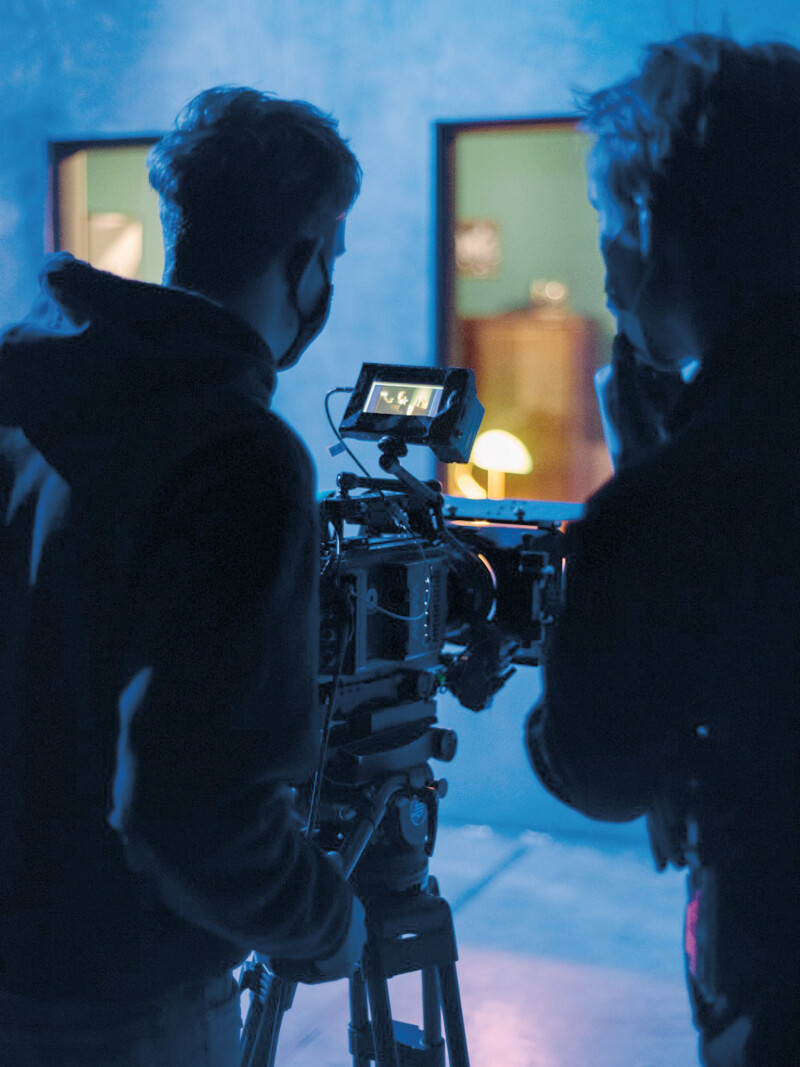
Jules Mathôt is in his final master year of film. That means working hard on his audiovisual calling card with which to go out into the world as a director. On 29 June, the films will have their avant-premiere at the Graduation 2021 graduation festival. For an interview with Onrust. Photography student Lars Duchateau was also present on the set and made some great images.
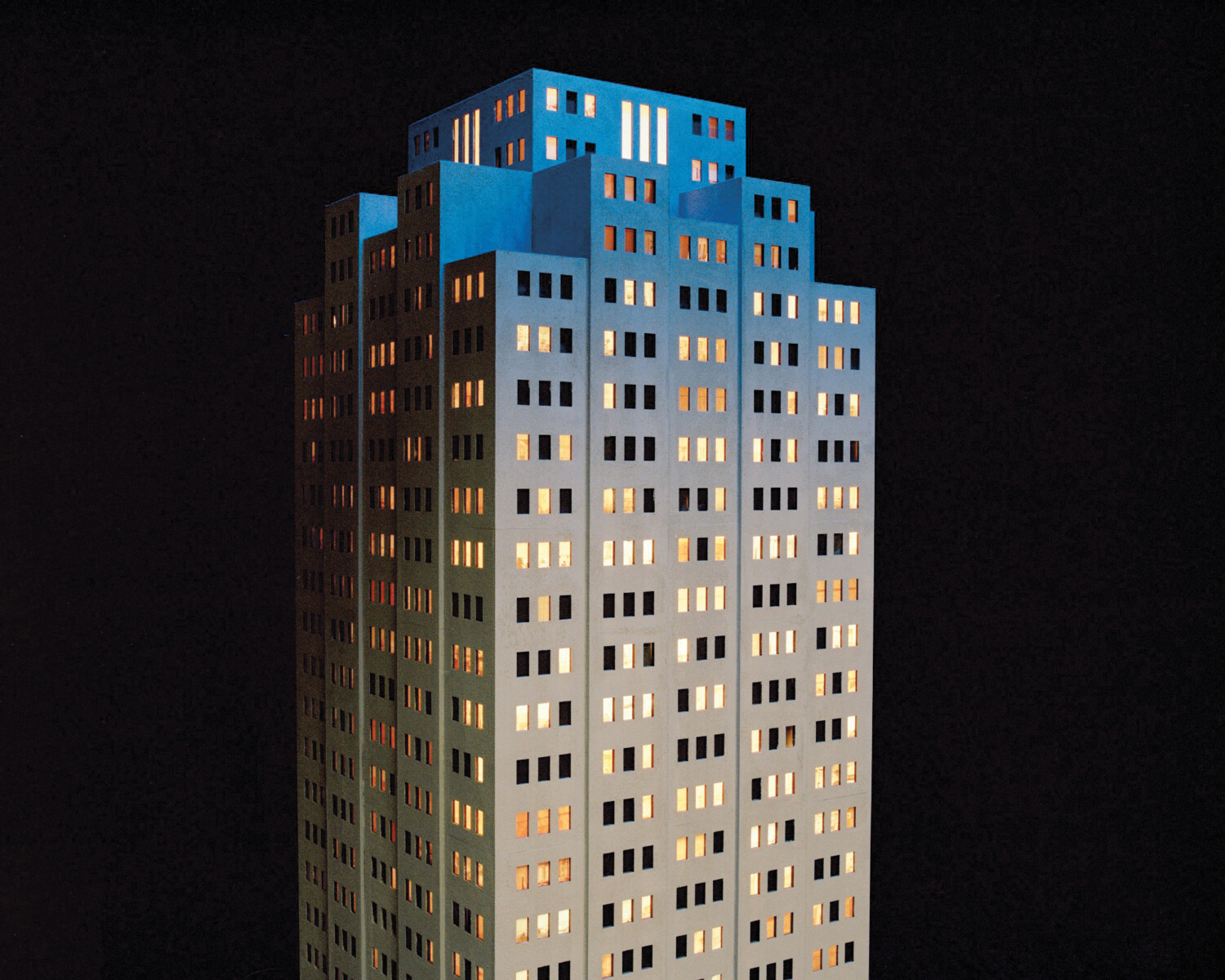
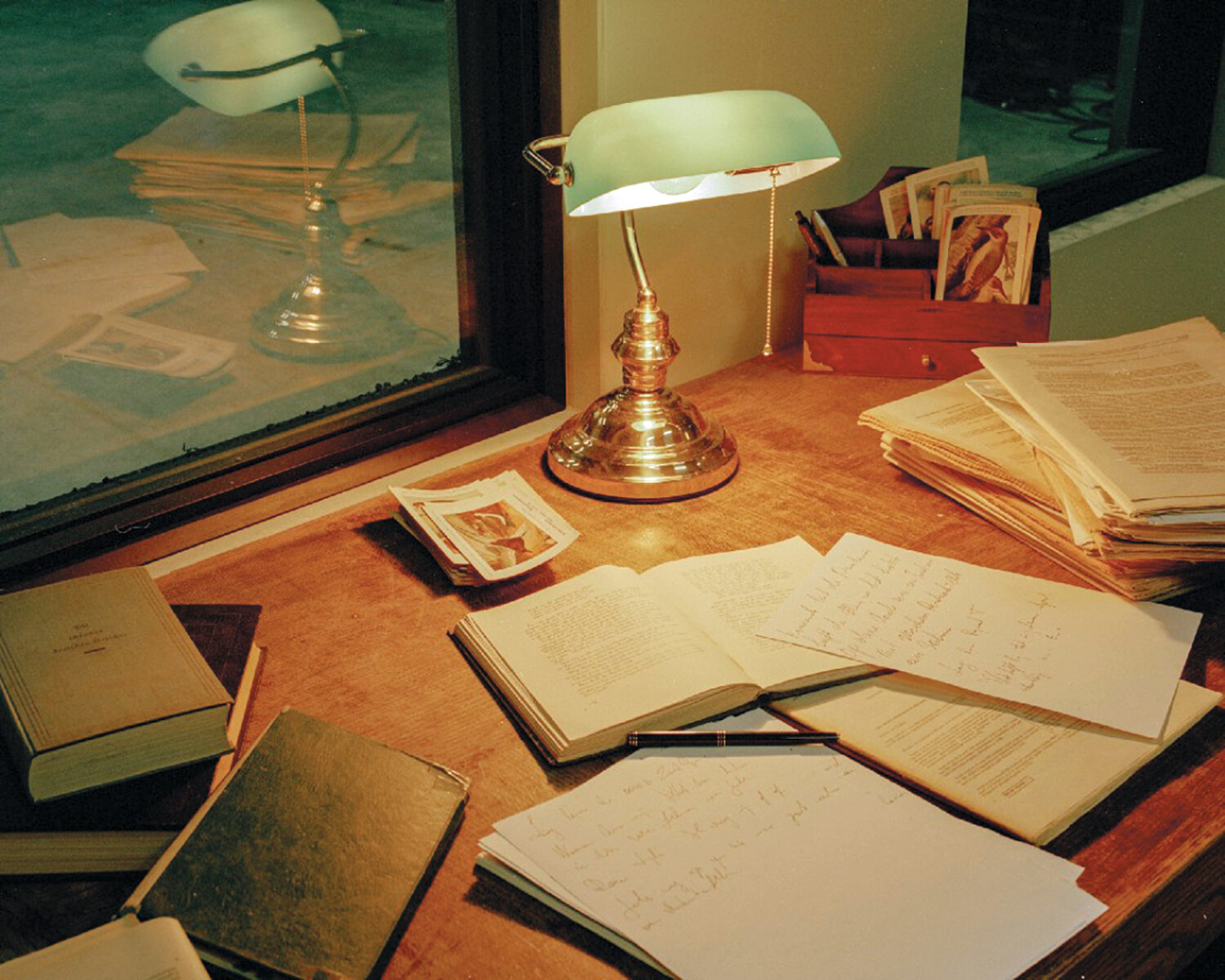
ONRUST
Hi Jules. Your film will be called Night by Night. Let's just start with the most obvious question. What is it about?
JULES MATHÔT
Night by Night is a detective story. The synopsis is pretty straightforward. A private detective is tasked with keeping an eye on someone and and to that end posts himself in an apartment across from the identical apartment of his target. Imagination comes into play when the long nights begin to look alike. That, in a few words, is the setup. At the end, I foresee a major plot twist, but I'm obviously not going to reveal it in full here.
ONRUST
A genre film.
JULES MATHÔT
Film noir has fascinated me for some time. The grim atmosphere, the urbane setting, the ominous music, that beautiful light-I'm very attracted to that studio perfectionism. As a graduating filmmaker, I asked myself, "Can I do that? I wanted to challenge myself.
ONRUST
So what films are we talking about specifically?
JULES MATHÔT
Especially neo noirs fascinate me because of their contemporary response to the films noirs from the 40s and 50s. A classic like Le Samouraï (Jean-Pierre Melville, 1967) cannot go unmentioned. In addition, I am thinking of Lost Highway (David Lynch, 1997) and The Man Who Wasn’t There (Joel and Ethan Coen, 2001). More recently Under the Silver Lake (David Robert Mitchell, 2018). And yes, given the setup with the apartments, you won't be surprised that I allow myself some visual references to Rear Window (Alfred Hitchcock, 1954).
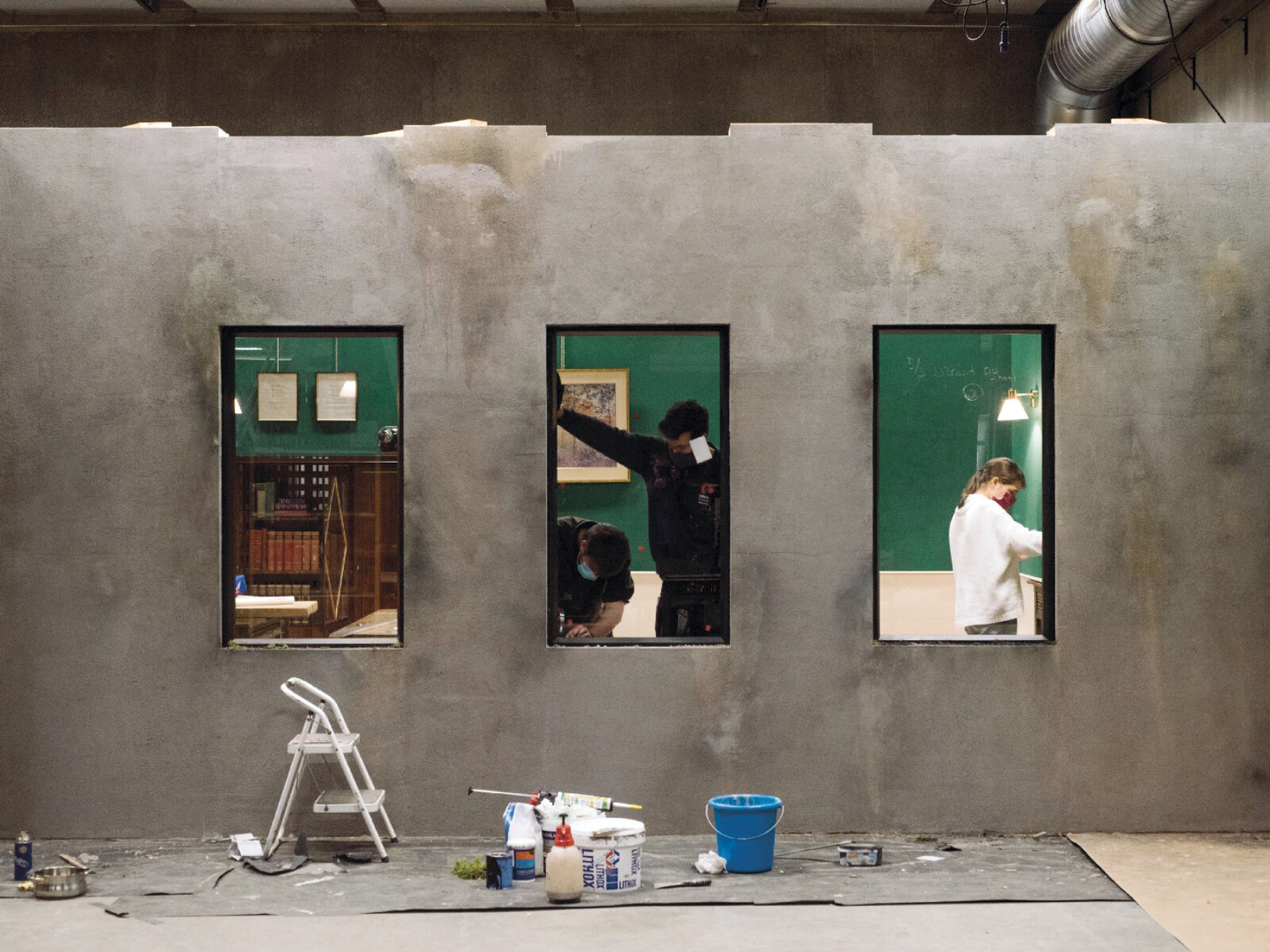
ONRUST
Is such an old American genre still relevant today?
JULES MATHÔT
Night by Night is an ode to the genre, although of course I am aware that the world has changed profoundly since its heyday. As an example, contemporary police work has little to do with the way in which a Humphrey Bogart races through an office. Small side note: even in the America of the forties and fifties things were probably quite different. Film noirs never intended to be an accurate depiction of reality. Realism can be found at the emotional, felt level. Artificial play and abstract light shape a film in which a specific kind of looking is central: peering at a scheming neighbor across the street, gazing at a corrupt society, a peek into the underworld, nocturnal nihilism, and so on. The heart of film noir remains surprisingly topical.
That theatrical, I would almost say that manufactured aspect, will also come out in my film. The tension between real and not-real is on several levels interwoven. On the level of the maker: me, a European, taking on an American genre. On the level of the story: a man watches from his window at another man in a similar setting. But also on the level of the spectator in the room who measures his viewing experience against a number of form expectations that simply accompany a genre film. The question is who is playing whom...
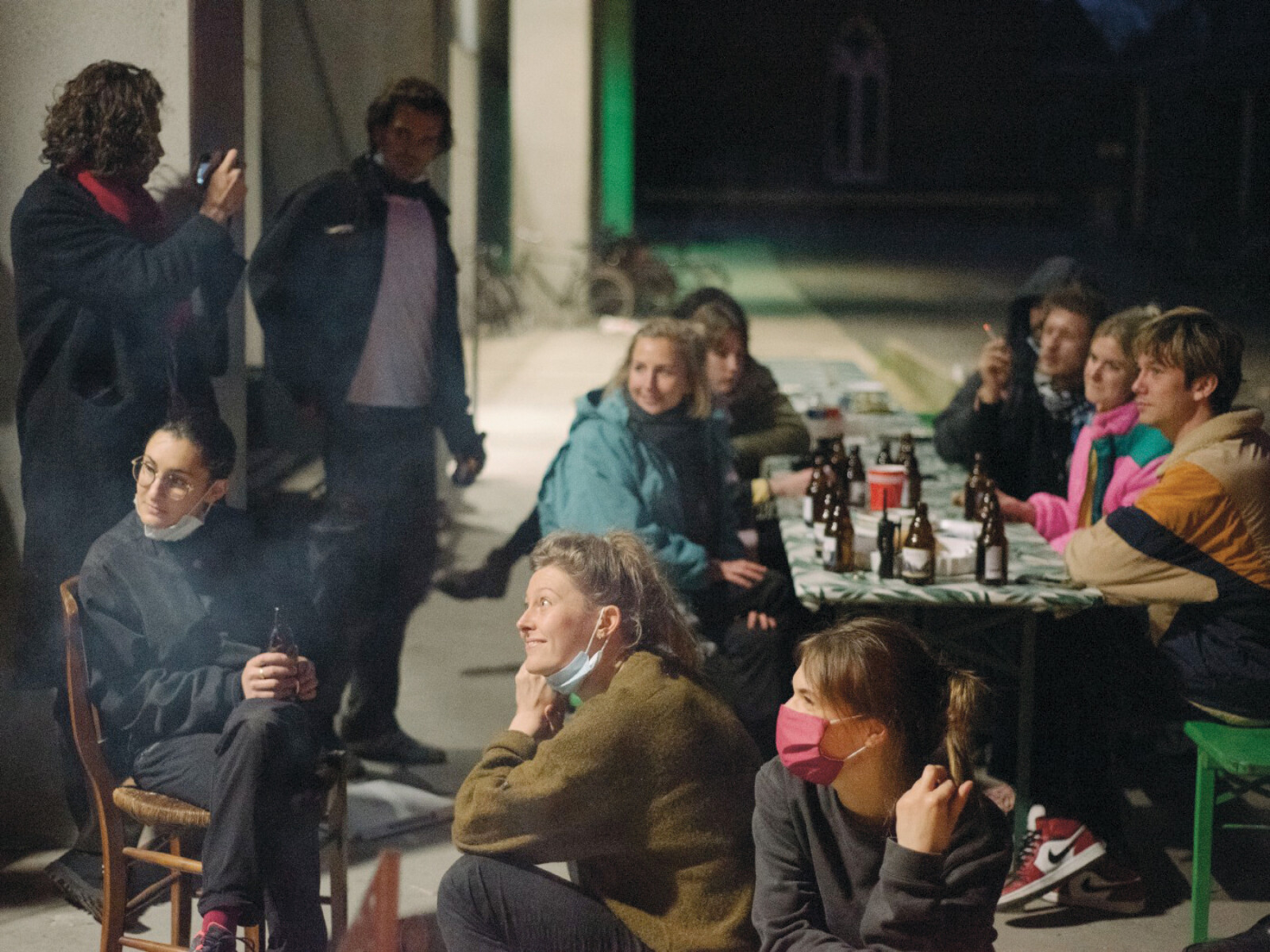
ONRUST
So it's not just an attempt to recreate a certain aesthetic and atmosphere?
JULES MATHÔT
Not exclusively, no. In addition to being an ode, Night by Night is also a way of personal processing. By definition, a genre is full of conventions and that’s what I'm going to work with. So yes, there will be a lot of cigarette smoke curling through the image. On the other hand, I want to inject the genre with a dose of warmth. Film noirs take place in a dark and chilly universe, you know, the God abandoned streets of a metropolis by night. Oddly enough, the lockdown made that idea very real. I realized how much we need each other. I want to move away from the private detective as the archetypal hero. In my film he will be a human being.
ONRUST
You are working with two actors. Who are they?
JULES MATHÔT
The private detective is Valentijn Dhaenens, known for such films as De helaasheid der dingen (Felix Van Groeningen, 2009) and Girl (Lukas Dhont, 2018). The other role is played by Raymond Thiry, whom people may know from Quo vadis, Aida? (Jasmila Zbanic, 2020) and Undercover (series, 2019-).
ONRUST
How do you get actors like this to work with you?
JULES MATHÔT
Well. You watch movies they play in and think 'Hey, that person might fit right in with my idea.' Sometimes you have to get smart to get their contact information. Once you have that, you send an extensive email with a reasoned pitch and some explanation of why exactly you see them for that role. And then i just waited. With any luck, they'll call back. I was lucky. Valentine was intrigued by the premise of film noir. For him, it is perhaps an artistic challenge. Raymond, too, was enthusiastic. It also has to work between them, of course; fortunately, at our first rehearsal it was clear that that was the case.
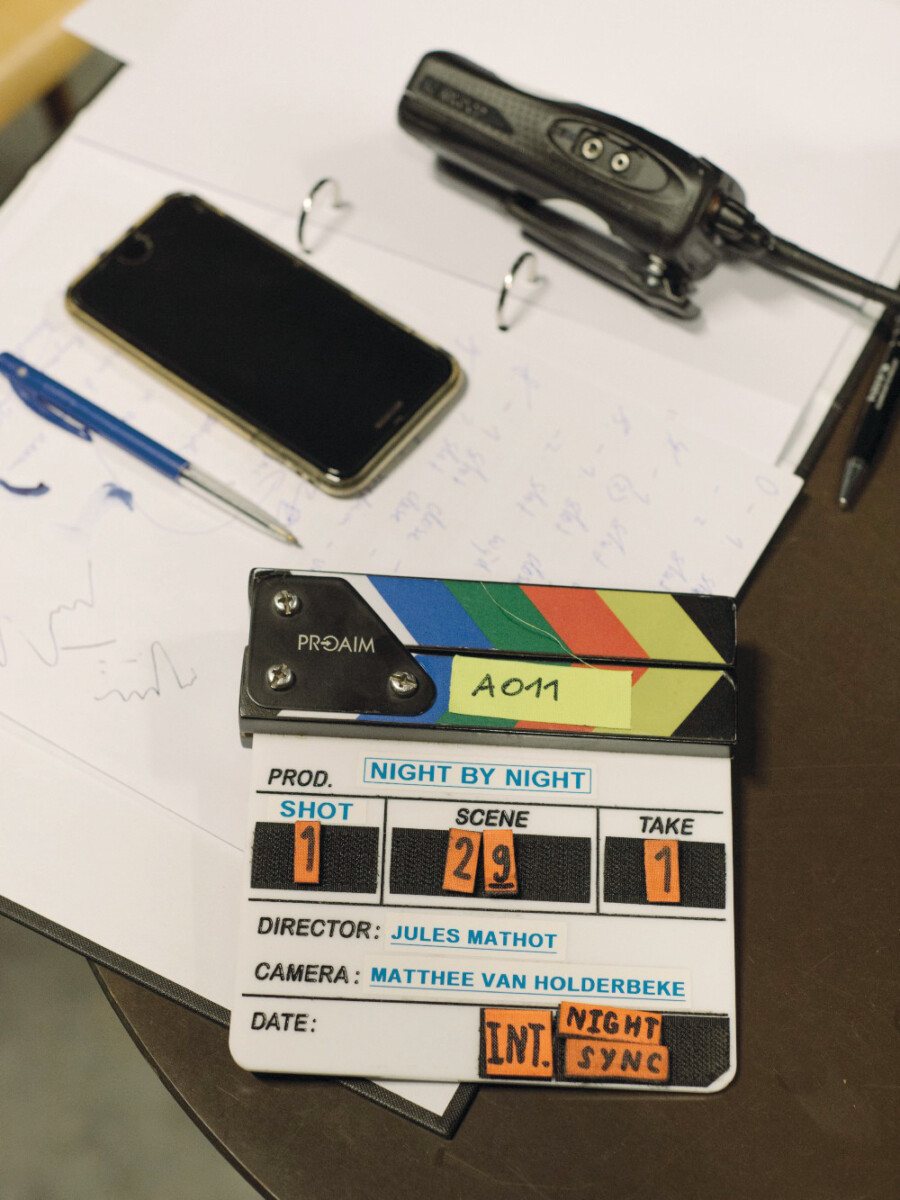
ONRUST
How is filming going?
JULES MATHÔT
The shooting days with the actors are done. Before that, we built one interior on life-size scale that we use twice. Remember, it's two identical apartments facing each other. First we filmed all the scenes with Raymond after which the set was repainted and decorated. Then it was Valentine's turn. A lot of energy goes into the planning and logistics of such a ‘move’. With the help of a strong decor team, it went off without a hitch. Currently we are finishing the model towers and then in a few weeks the ‘outside shots’. In quotes because it is all studio work with special model lenses and so on. For the design of the set and towers, I got a lot of help from my friend who studies Civil Engineering at the Technical University of Delft. We started construction in early January, here in the wood workshop of the school. I owe many thanks to Evert and Miel for their expertise.
ONRUST
Sounds all wonderfully labor-intensive. And expensive, too.
JULES MATHÔT
A studio film is quite pricey indeed. There's quite a lot material involved. We use special concrete paint from lithox and quartz sand for example, expensive stuff. Part of the budget I finance myself. Another part I will raise through crowdfunding. In addition, I can call on some prize money. I found some extra money through a successful pitch at the Ghent production company The Breakfast Club. SABAM also made a contribution.
ONRUST
How does this film compare to your earlier work?
JULES MATHÔT
I have already started with the editing and I notice that it has a bigger role to play than in my previous work where the edits were a lot more linear. Now the story spans several days, months maybe. Beginning and end are clear, but in between it turns into a kind of fever dream, a drowning in mystery and paranoia. Room then arises for interesting and absurd montage sequences to audio-visually translate the mental state of the private detective. The role of music and sound in this process is not to be underestimated. The film music will be fierce. I am working with two composers. We spent hours talking to each other to establish our starting common grounds. I pointed them to the sound of Bernard Herrmann for example. The film will begin in a cliché-like way begin, quasi-pastiche way. Then it will evolve into something more contemporary, something more humane.
ONRUST
Meanwhile we, the viewer have moved to a heightened state of curiosity. Good luck Jules, we're already looking forward to the premiere at Graduation.
JULES MATHÔT
We'll see you in the cinema!
Text: Régis Dragonetti.
